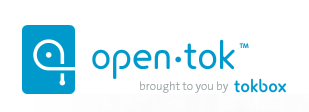TokBox, the San Francisco-based WebRTC and video chat company recently acquired by Spain’s Telefónica Digital, announced that it has launched what it calls the “first platform to power WebRTC video chat across browsers and iOS devices.” TokBox’s OpenTok platform allows developers to integrate video chat into their apps, and thanks to today’s release of OpenTok for WebRTC, developers will now be able to provide their users with high-quality video chats across devices.
The launch of OpenTok for WebRTC was clearly meant to coincide with the launch of the next stable version of Chrome later this week. Google’s Chrome was one of the first browsers to embrace WebRTC, after all, (together with Opera), though Mozilla is also committed to enabling it for its Firefox browser. Even Microsoft, which was somewhat opposed to it early on, now plans to offer some support in Internet Explorer.
As part of today’s announcement, TokBox is also launching a beta of its OpenTok Android SDK into OpenTok Labs. This, the company says, will allow Android developers to integrate video chat into their apps with “only a few lines of code.”
The real story for OpenTok today, however, is that the platform is the first to enable cross-platform WebRTC chat between browsers and iOS devices. Bridgestone Gold, TokBox announced today, is the first organization to use this new feature by rolling out iPad-based video chat kiosks in over 1,000 stores.
 According to TokBox CEO Ian Small, the ability to offer a cross-platform video chat solution solves a real problem, as “live video communications is increasingly a mainstream service, but fragmentation of devices and browsers is causing problems for many developers. OpenTok is becoming the glue that interconnects all the elements, so anyone adding face-to-face video to their service doesn’t need to worry about whether their users can connect; it will just work everywhere.”
According to TokBox CEO Ian Small, the ability to offer a cross-platform video chat solution solves a real problem, as “live video communications is increasingly a mainstream service, but fragmentation of devices and browsers is causing problems for many developers. OpenTok is becoming the glue that interconnects all the elements, so anyone adding face-to-face video to their service doesn’t need to worry about whether their users can connect; it will just work everywhere.”
TokBox says its platform is currently being used by more than 50,000 organizations, including Ford, Doritos, Major League Baseball and American Idol. Now that it is part of Telefónica, the company will likely be able to extend its reach even further.
